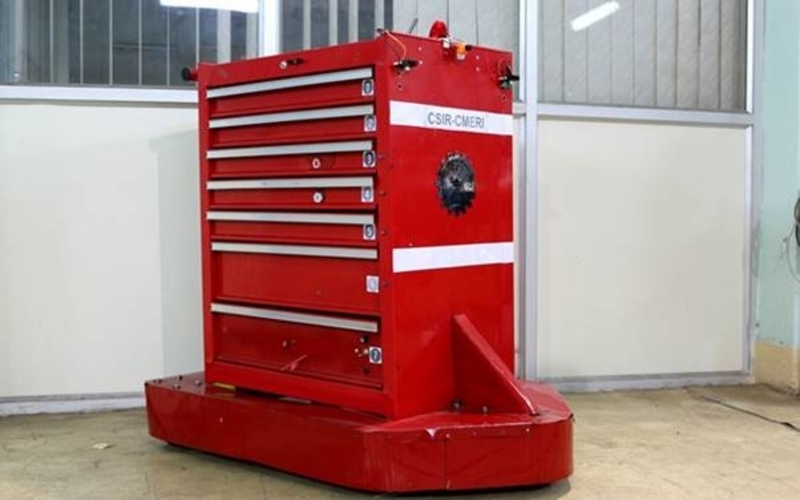
Healthcare workers at hospitals are at the risk of being infected with COVID-19 while they take care of patients 24/7.
According to a press release, the government hopes the level of risk may be reduced with the help of HCARD, a robot.
The robotic device HCARD, short for Hospital Care Assistive Robotic Device, can help frontline healthcare workers maintain physical distance from those infected by COVID-19.
HCARD is developed by Durgapur-based Council of Scientific and Industrial Research (CSIR) lab, Central Mechanical Engineering Research Institute. The device is equipped with various state-of-the-art technologies and works both in automatic as well as manual modes of navigation.
This robot can be controlled and monitored by a nursing booth with a control station having such features as navigation, a drawer activation for providing medicines and food to patients, sample collection and audio-visual communication.
Dr Harish Hirani, Director, CSIR-CMERI stated that HCARD could be effective for frontline healthcare officials dealing with COVID-19 patients in delivering services while maintaining mandatory physical distancing. The cost of this device is less than IN 500,000 and the weight is less than 80 kilograms, the press release noted.
The release stated that CSIR-CMERI is working on war footing to minimise the impact of COVID-19 through technological interventions. As spelt out by WHO, personal protective equipment (PPE) is very important in preventing transmission of coronavirus in the society, thus the institute has channelized its resources optimally to develop PPE and community-level safety equipment for helping the public at large and healthcare institutions.
Scientists at CMERI have also developed a few other customised technologies, including a disinfection walkway, road sanitiser units, face masks, mechanical ventilators, and hospital waste management facilities.
Another organisation under CSIR, the Central Scientific Instruments Organisation (CSIR-CSIO), Chandigarh, has designed and developed technology for effective disinfection and sanitisation to fight the virus.
CSIR-CSIO has transferred this technology to a Nagpur-based company, for commercialisation and large-scale production. This technology is efficient at stopping the spread of coronavirus and pathogens, say CSIR-CSIO scientists.
The electrostatic disinfection machine was developed based on the electrostatic principle. It produces a uniform and fine spray droplet of disinfectants in the size range of 10-20 micrometre to kill microorganisms and viruses.
Due to the small size of droplets, the surface area of spray droplets increases thereby enhancing the interaction with harmful microorganisms and coronavirus. The machine uses very less disinfection material as compared to conventional methods, which helps to save natural resources with a negligible increase in chemical waste in the environment.
Charged droplets emitted from the disinfection machine can cover the directly exposed and obscured surfaces uniformly with increased efficiency and efficacy and the disinfectant reaches to any hidden areas of the target, where there is a maximum possibility to find the viruses. Therefore, it kills or inhibits the growth of pathogens effectively.
Various technologies of electrostatic spraying have been already transferred to industry for different industrial and societal applications such as electrostatic pesticides sprayers and electrostatic dust mitigation and environmental protection devices.
















